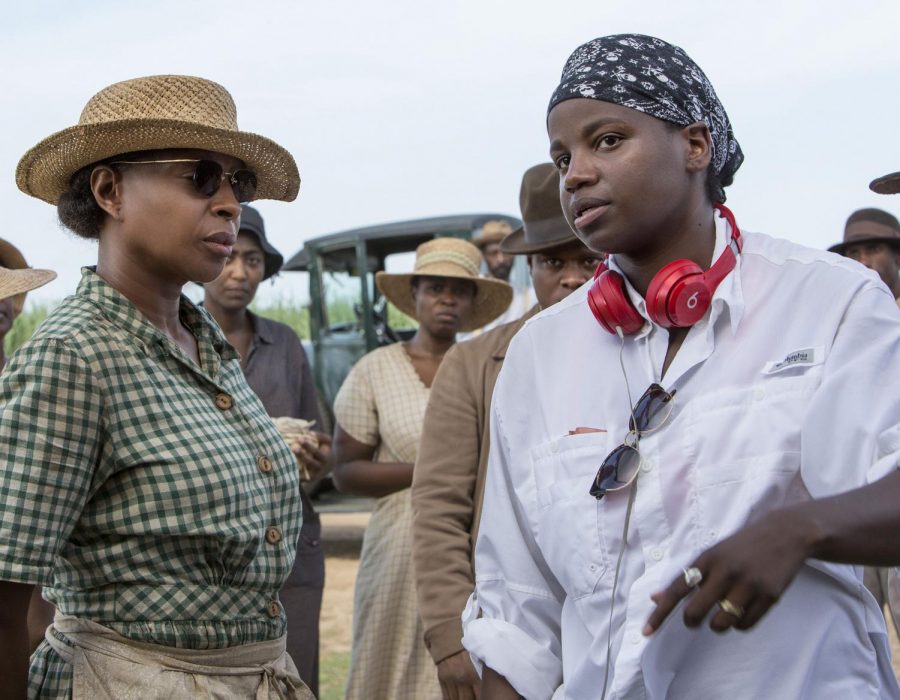WWII film highlights trauma at home
The film “Mudbound” was released Nov. 17, 2017 through Netflix. Mary J. Blige plays Florence Jackson, a role that earned her an Oscar nomination.
Feb 22, 2018
For many American soldiers, the end of World War II in May of 1945 was a cause for celebration that resulted in the return of thousands of G.I.s to their loved ones. However, the end of the war proved to be much more complicated for soldiers of color — namely, black Americans who had fought overseas for a freedom in which they were not allowed to partake once they returned home.
These complications of war-time heroism and post-war prejudice course throughout “Mudbound,” the Oscar-nominated period drama from director Dee Rees.
The film, which was exclusively released on Netflix in late 2017, follows the seemingly disparate but surprisingly similar struggles that two World War II veterans — one black and one white — face when they return to their respective families in the Deep South of rural Mississippi.
Featuring gorgeously composed visuals, a hauntingly poetic screenplay and powerful performances, “Mudbound” is an emotionally stirring and thought-provoking exploration of America’s troubled history of racism and post-war neglect.
Directing: 5/5
Despite the desolation and bleakness that its title suggests, “Mudbound” is a visually stunning film that makes full use of its various settings to either reflect or counterpoint the inner psyche of its characters.
Whether it’s the low, purplish horizon of a Mississippian sunset or a shrapnel-laden battlefield in Nazi-era Germany, Rees excels in framing her characters against visually dense backdrops that elicit as much of an emotional response from the viewer as the actors’ actual on-screen performances.
Rees also deserves ample praise for her ability to seamlessly join contrasting narrative elements by way of meticulous framing and elegant match cuts.
In other words, Rees is able to create a subconscious link between certain characters through sheer visual symmetry — such as a sequence composed of sharp cuts between farmer Hap Jackson’s fall from a ladder in rural Mississippi and his son Ronsel Jackson tumbling out of a tank in Nazi Germany.
In addition to Rees’ richly textured scenery and deft editing, “Mudbound” also achieves a visual dynamism through cinematographer Rachel Morrison’s Oscar-nominated work behind the camera, controlling light and shadows to add shades of vibrancy and darkness to the film’s characters.
Writing: 5/5
Perhaps even more impressive than Rees’ directing is her co-written screenplay with Virgil Williams, based on the novel “Mudbound” by Hillary Jordan. Nominated for Best Adapted Screenplay, Rees’ film boasts some of the most beautifully melancholic voice over narration to be featured in an American film since the classic film noirs of the 1940s and 1950s.
The recurring use of narration throughout “Mudbound” serves to provide a revealing glimpse inside the inner lives of several of the film’s central characters, while also reiterating the film’s ambitious polyvocal narrative structure.
Although it could be argued that the film’s primary protagonist is soldier Ronsel Jackson, Rees generally allows her sprawling narrative to shift focus amongst a variety of characters. By doing so, Rees effectively underscores the ways in which war and, in this case, racism and intolerance can have far-reaching effects on not only individual people, but also entire families and communities.
Finally, it goes without saying that the characters themselves are fully formed and well developed. No one in “Mudbound” comes across as caricatures or mere archetypes; they are, instead, real human beings with real fears, hopes and complexities.
Acting: 5/5
Fortunately, Rees’ masterful direction and beautifully penned screenplay are matched by a cast of supremely talented and committed actors.
Jason Mitchell is particularly excellent as the aforementioned Ronsel Jackson, an African American soldier who returns home from the war, only to confront bigotry and prejudice in his own community.
Mitchell conveys an impressive range of emotion throughout the film, from the terror of seeing a bullet strike a fellow soldier’s brain at close range to the intimacy of reuniting with an estranged lover.
Mary J. Blige is equally impressive as Florence Jackson, Ronsel’s mother, in a performance that has earned her an Academy Award nomination. Florence ultimately serves as a beacon of compassion and strength, as Blige brings an inordinate degree of resilience and empathy to her character.
Finally, although praise could be deservedly directed at half a dozen additional actors in the film, the third primary standout in “Mudbound” is Garrett Hedlund as Jamie McAllan, the white soldier who comes to reject his racist upbringing upon his return to Mississippi.
Hedlund skillfully conveys his character’s internal struggle, switching between scenes of violent trauma-induced flashbacks to unexpected moments of warmth and humility.
Overall: 5/5
“Mudbound” is one of the most emotionally resonant — and, in many ways, unconventional — World War II dramas in recent memory.
By straying away from the horrors of the battlefield and focusing instead on the treatment of soldiers — particularly soldiers of color — after the war, Rees succeeds in painting a visually and narratively rich portrait of the trauma that arises from war and the intolerance that breeds such conflict.


















